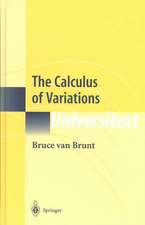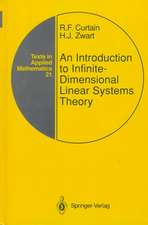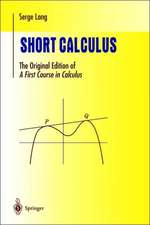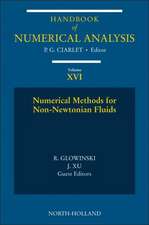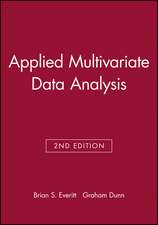Asymptotic Analysis: Linear Ordinary Differential Equations
Autor Mikhail V. Fedoryuk Traducere de A. Rodicken Limba Engleză Paperback – 13 oct 2012
Preț: 392.75 lei
Nou
Puncte Express: 589
Preț estimativ în valută:
75.16€ • 78.18$ • 62.05£
75.16€ • 78.18$ • 62.05£
Carte tipărită la comandă
Livrare economică 15-29 aprilie
Preluare comenzi: 021 569.72.76
Specificații
ISBN-13: 9783642634352
ISBN-10: 3642634354
Pagini: 376
Ilustrații: VIII, 363 p.
Dimensiuni: 155 x 235 x 20 mm
Greutate: 0.53 kg
Ediția:Softcover reprint of the original 1st ed. 1993
Editura: Springer Berlin, Heidelberg
Colecția Springer
Locul publicării:Berlin, Heidelberg, Germany
ISBN-10: 3642634354
Pagini: 376
Ilustrații: VIII, 363 p.
Dimensiuni: 155 x 235 x 20 mm
Greutate: 0.53 kg
Ediția:Softcover reprint of the original 1st ed. 1993
Editura: Springer Berlin, Heidelberg
Colecția Springer
Locul publicării:Berlin, Heidelberg, Germany
Public țintă
ResearchCuprins
1. The Analytic Theory of Differential Equations.- §1. Analyticity of the Solutions of a System of Ordinary Differential Equations.- § 2. Regular Singular Points.- § 3. Irregular Singular Points.- 2. Second-Order Equations on the Real Line.- § 1. Transformations of Second-Order Equations.- § 2. WKB-Bounds.- § 3. Asymptotic Behaviour of Solutions of a Second-Order Equation for Large Values of the Parameter.- § 4. Systems of Two Equations Containing a Large Parameter.- § 5. Systems of Equations Close to Diagonal Form.- § 6. Asymptotic Behaviour of the Solutions for Large Values of the Argument.- § 7. Dual Asymptotic Behaviour.- § 8. Counterexamples.- § 9. Roots of Constant Multiplicity.- § 10. Problems on Eigenvalues.- § 11. A Problem on Scattering.- 3. Second-Order Equations in the Complex Plane.- § 1. Stokes Lines and the Domains Bounded by them.- § 2. WKB-Bounds in the Complex Plane.- § 3. Equations with Polynomial Coefficients. Asymptotic Behaviour of a Solution in the Large.- § 4. Equations with Entire or Meromorphic Coefficients.- § 5. Asymptotic Behaviour of the Eigenvalues of the Operator -d2 / dx2 + ?2q(x). Self-Adjoint Problems.- § 6. Asymptotic Behaviour of the Discrete Spectrum of the Operator -y? + ?2q(x)y. Non-Self-Adjoint Problems.- § 7. The Eigenvalue Problem with Regular Singular Points.- § 8. Quasiclassical Approximation in Scattering Problems.- § 9. Sturm-Liouville Equations with Periodic Potential.- 4. Second-Order Equations with Turning Points.- § 1. Simple Turning Points. The Real Case.- § 2. A Simple Turning Point. The Complex Case.- § 3. Some Standard Equations.- §4. Multiple and Fractional Turning Points.- § 5. The Fusion of a Turning Point and Regular Singular Point.- § 6. Multiple Turning Points. The ComplexCase.- § 7. Two Close Turning Points.- § 8. Fusion of Several Turning Points.- 5. nth-Order Equations and Systems.- § 1. Equations and Systems on a Finite Interval.- § 2. Systems of Equations on a Finite Interval.- § 3. Equations on an Infinite Interval.- § 4. Systems of Equations on an Infinite Interval.- § 5. Equations and Systems in the Complex Plane.- § 6. Turning Points.- § 7. A Problem on Scattering, Adiabatic Invariants and a Problem on Eigenvalues.- § 8. Examples.- References.

